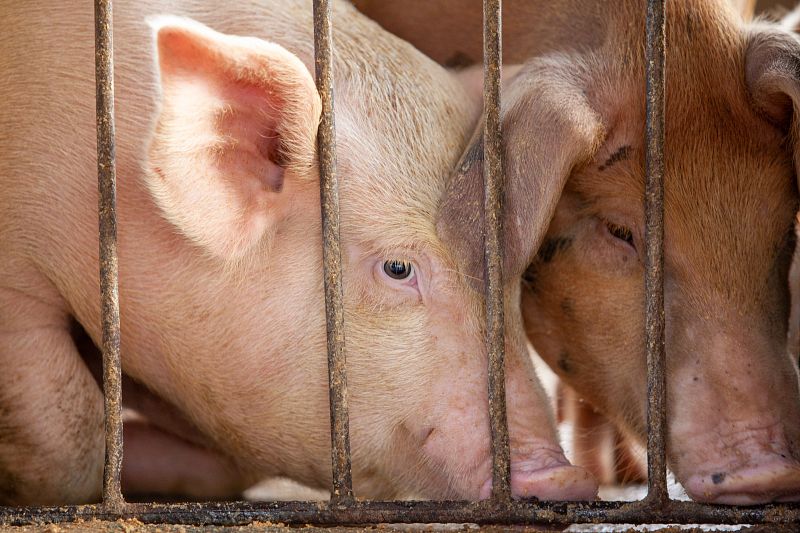UW Replaces Animals in Deadly Training Lab Following Years of Pressure From Physicians, Local and State Legislators

SEATTLE, Wash.—The University of Washington confirmed yesterday that it has ended the use of live animals for the training of paramedics. The change came after a 9-year effort led by the Physicians Committee for Responsible Medicine—a national nonprofit with more than 17,000 doctor members—that involved King County officials and state legislators. Previously, UW had instructed paramedic students to cut into the necks of pigs and insert a breathing tube in a procedure known as a surgical airway. On Wednesday, UW professor and Medical Program Director for King County Medic One Thomas Rea, MD, MPH, confirmed via email that the university’s paramedic training has “transitioned to high-fidelity simulation. We do not use live tissue for training.”
Since it first contacted UW in 2012, the Physicians Committee has emphasized that airway simulators modeled on human anatomy are used in hundreds of medical training programs across the United States. In June 2021, the nonprofit installed 25 ads in the UW Link light rail station. The ads shared research findings supportive of nonanimal training methods, highlighting that simulators mimic the stress of real-world emergencies and allow trainees to build confidence and acquire life-saving skills.
Grave concerns over UW’s flagrant animal use spurred elected officials to contact the university on several occasions and even introduce legislation. In 2017, eight state representatives wrote to UW president Ana Mari Cauce, PhD, to urge the replacement of animals. In 2018, King County Executive Dow Constantine and County Councilmember Dave Upthegrove wrote to Dr. Cauce and UW Medicine CEO Paul Ramsey, MD, stating that they were “deeply concerned about the practice of using live pigs to train paramedics.” In 2018, Sens. Guy Palumbo and Christine Rolfes introduced a bill to outlaw the use of animals in paramedic training. In 2019, the bill was reintroduced, with Sens. Sam Hunt and Hans Zeiger joining as sponsors.
“We are relieved and encouraged that UW has finally decided to improve its paramedic training,” said John Pippin, MD, FACC, director of academic affairs with the Physicians Committee. “This change sends a clear message that the best way to prepare first-responders is with human-based methods.”
To interview Dr. Pippin or to see the letters or legislation referenced, please contact Reina Pohl at 202-527-7326 or rpohl [at] pcrm.org (rpohl[at]pcrm[dot]org).
Media Contact
Reina Pohl, MPH
202-527-7326
rpohl[at]pcrm.org
Founded in 1985, the Physicians Committee for Responsible Medicine is a nonprofit organization that promotes preventive medicine, conducts clinical research, and encourages higher standards for ethics and effectiveness in education and research.








